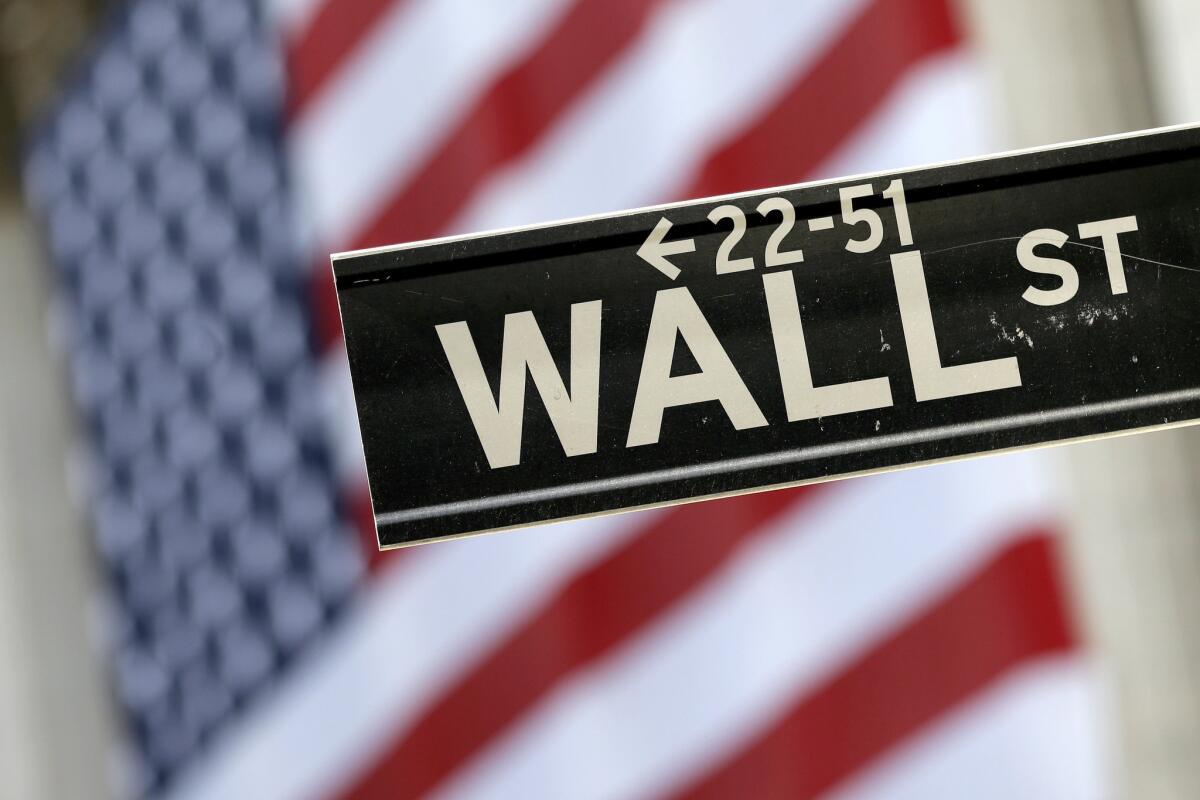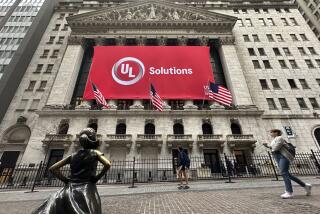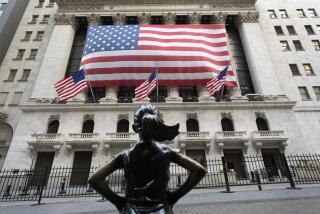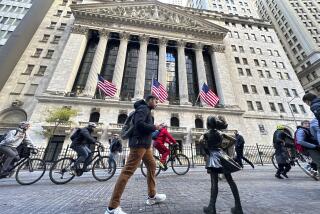Stocks plunge on fears of slowing global growth derailing the U.S. economy

U.S financial markets plunged Wednesday amid new fears that slowing global growth will derail a domestic economy long overdue for a recession.
After starting the day slightly higher on better-than-expected trade data from China, the major U.S. stock indexes began tumbling and continued falling throughout the day.
The sliding price of oil greased the downturn in a sign that investors see demand for energy falling because economies around the world are decelerating.
The Dow Jones industrial index dropped 364.81 points, or 2.2%, to 16,151.41. The Standard & Poor’s 500 index fell 48.40 points, or 2.5%, to 1,890.28.
The losses in the technology-heavy Nasdaq were even worse. It plummeted nearly 160 points, or 3.4%, to 4,526.06.
Each of the three indexes hit their lowest levels since late September in a rout triggered this year by economic and market troubles in China.
“It’s a very uncertain time,” said John Lonski, chief economist at Moody’s Capital Markets Research Group.
“There are too many investors out there who believe the market has already peaked, and when they have an opportunity to exit, they do so pronto,” he said.
The nervousness comes with a volatile start to 2016.
The Nasdaq is down 9.6% this year, while the S&P 500 and Dow each have fallen more than 7%. Each of the three major U.S. indexes are in or nearing correction territory, meaning a decline of 10% from their recent highs.
There didn’t appear to be a specific trigger for Wednesday’s sell-off, which came in the wake of gains in some major markets in Asia and Europe.
But the continued slide in oil prices didn’t help.
International Brent crude prices dropped 2% and briefly fell below $30 a barrel for the first time since 2004. That came a day after U.S. benchmark West Texas intermediate crude oil slipped temporarily below $30 a barrel for the first time since 2003; it edged up 4 cents to close Wednesday at $30.42 a barrel.
Some analysts think the prices could keep falling to near $20 a barrel. Although the lower prices help consumers and businesses, they are a flashing warning sign for investors because they signal weak demand.
Slower growth in China and elsewhere has fueled those dropping prices as reduced demand from industry has exacerbated a glut in worldwide petroleum supplies.
The economic story has been different in the U.S.
Recent data have been upbeat. Last week, the Labor Department reported the economy added 292,000 net new jobs in December, much more than expected.
And in his State of the Union address Tuesday, President Obama declared: “The United States of America, right now, has the strongest, most durable economy in the world.”
But those jobs figures don’t indicate where the economy is headed, Lonski said. And the recovery from the Great Recession is now approaching seven years, an unusually long period of growth without a downturn.
“The market just strongly senses that the recovery is losing momentum,” he said. The risk of a recession this year has risen to about 20%, he said.
Investors also are concerned that the Federal Reserve has begun increasing a key short-term interest rate. Higher borrowing costs make it more difficult for businesses to expand, which can be a drag on growth.
Central bank policymakers nudged up the rate by 0.25 percentage point in December after having kept it near zero for seven years to try to boost the economy. They said the recovery was strong enough to warrant the hike and signaled a slow increase this year.
On Wednesday, Eric Rosengren, president of the Federal Reserve Bank of Boston, reiterated the intention of central bank policymakers to decide on future rate hikes based on economic conditions.
“While monetary policy should not overreact to short-term, temporary fluctuations in financial markets, policymakers should take seriously the potential downside risks to their economic forecasts,” he told the Greater Boston Chamber of Commerce.
But the Fed might need to send stronger messages to try to calm investors’ nerves, Lonski said.
“Perhaps the market is just concerned that Fed policymakers are not indicating sufficient sensitivity to the worsening outlook for the global economy,” he said. “The best thing the Fed could do to improve sentiment is simply state the obvious — the global economy does matter.”
jim.puzzanghera@latimes.com







